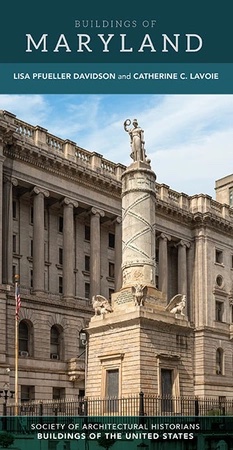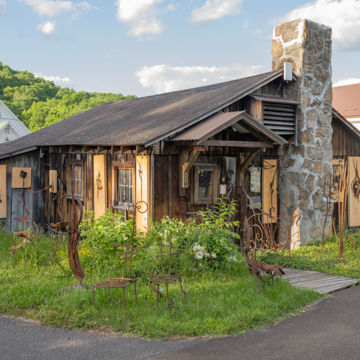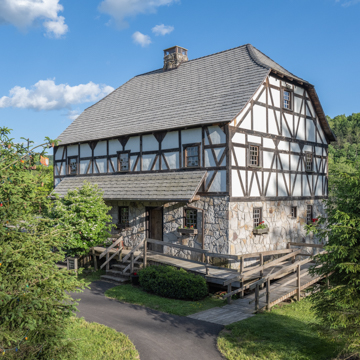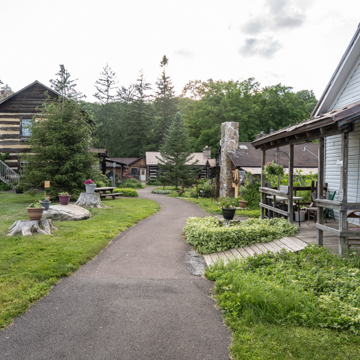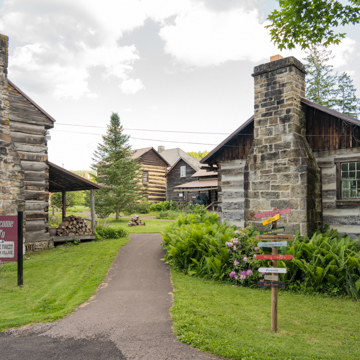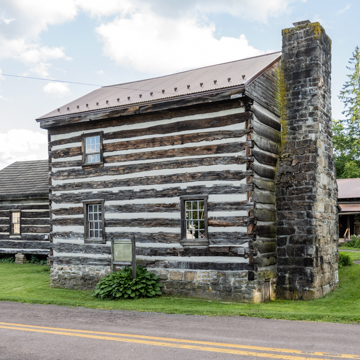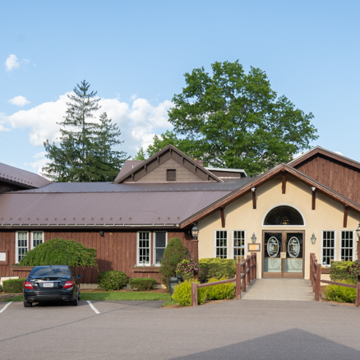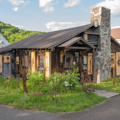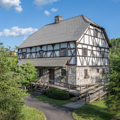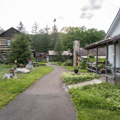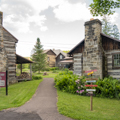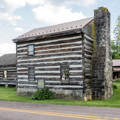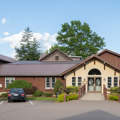This mid-twentieth-century roadside attraction along U.S. 40 began as an early-nineteenth-century log dwelling later used as a tavern and inn. The inn was modified in the late nineteenth century into a two-and-a-half-story structure with Italianate detailing. This section faces old U.S. 40 (now Casselman Road) to the north and is still partially visible embedded within the various twentieth-century commercial additions.
Around 1957 Dr. Alta Schrock left her job as a biology professor and acquired the property to develop the Penn Alps Restaurant and craft store and the adjacent Spruce Forest Artisan Village. A March 15, 1964, New York Times article enthused that “the handiwork one finds here, plus the low prices and the unspoiled, uncluttered mountain scenery, makes one wonder if Penn Alps is part of the modern world.” While committed to the preservation of traditional regional handicrafts through the nonprofit Penn-Alps Association, Schrock shrewdly expanded her operation over the decades, using the restaurant and festivals as a draw.
The adjacent village of around a dozen log and frame buildings was created gradually by building cabins from historic materials and techniques or moving historic structures to the site. It provides workshops for a variety of artisans creating traditional crafts such as baskets, pottery, and bird carvings. One of the first structures, the log Winterberg House (1820), was moved from nearby Grantsville in 1967 to become a demonstration studio for spinning and weaving. One of the oldest structures on-site is the Mark-ley House (c. 1775) a two-story log house disassembled and rebuilt at Spruce Village in the late 1980s. Bear Hill School, a frame one-room schoolhouse in service from 1913 to 1952, was moved from Jennings, Maryland, in 1994 to become a woodturning shop.








